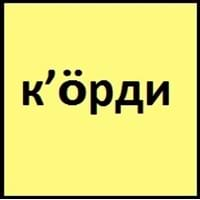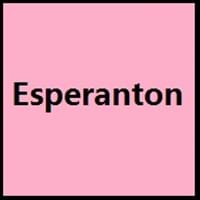Kurdish and Esperanto
Countries
Iraq, Kurdistan
East Asia, European Union, South America
National Language
Azerbaijan, Georgia, Iran, Iraq, Syria, Turkey
East Asia, European Union
Second Language
Not spoken in any of the countries
Central Europe, East Asia, Eastern Europe, South America
Speaking Continents
Middle East
Asia, Europe, South America
Minority Language
Not spoken in any of the countries
Not spoken in any of the countries
Regulated By
Not Available
Akademio de Esperanto
Interesting Facts
- The vocabulary in Kurdish is of Iranian origin.
- In the middle East, Kurdish is the fourth largest ethnic group.
- The most widely spoken constructed language in the world is Esperanto.
- Esperanto is an artificial international language.
Similar To
Farsi Language
Not Available
Derived From
Not Available
Not Available
Alphabets in
Kurdish-Alphabets.jpg#200
Esperanto-Alphabets.jpg#200
Scripts
Arabic, Cyrillic, Latin
Latin
Writing Direction
Right-To-Left, Horizontal
Not Available
How Are You?
Tu çawa yî?
Kiel vi sanas?
Good Night
Şev xweş
Bonan nokton
Good Evening
Evare baş
Bonan vesperon
Good Afternoon
Nee-wa-rowt bash
Bonan posttagmezon
Good Morning
Bayanit bash
Bonan matenon
Please
Bê zehmet
Mi petas
Sorry
Bibûre
Mi bedaŭras!
I Love You
Ez te hez dikem
Mi amas vin
Excuse Me
Bê zehmet
Pardonu!
Dialect 1
Northern Kurdish
Not present
Where They Speak
northern Iraq, northern Syria, northwest Iran, southeast Turkey
Not present
How Many People Speak
Not Available
Dialect 2
Central Kurdish
Not present
Where They Speak
Iraq, Kurdistan Province of western Iran
Not present
How Many People Speak
Not Available
Dialect 3
Southern Kurdish
Not present
Where They Speak
Eastern Iraq
Not present
How Many People Speak
Not Available
Speaking Population
Not Available
Second Language Speakers
Not Available
Native Name
Kurdí / کوردی / к’öрди
Esperanto
Alternative Names
Not Available
Eo, La Lingvo Internacia
French Name
kurde
espéranto
German Name
Kurdisch
Esperanto
Pronunciation
Not Available
[espeˈranto]
Ethnicity
Kurds
Not Available
Origin
16th century CE
1887
Language Family
Indo-European Family
Indo-European Family
Subgroup
Indo-Iranian
Not Available
Branch
Not Available
Not Available
Early Forms
Not Available
Proto-Esperanto
Standard Forms
Kurdish
Esperanto
Signed Forms
Not Available
Signuno
Scope
Macrolanguage
Individual
ISO 639 6
Not Available
Not Available
Glottocode
kurd1259
espe1235
Linguasphere
58-AAA-a
51-AAB-da
Language Type
Living
Constructed
Language Linguistic Typology
Subject-Object-Verb
Not Available
Language Morphological Typology
Not Available
Agglutinative
All Kurdish and Esperanto Dialects
Most languages have dialects where each dialect differ from other dialect with respect to grammar and vocabulary. Here you will get to know all Kurdish and Esperanto dialects. Various dialects of Kurdish and Esperanto language differ in their pronunciations and words. Dialects of Kurdish are spoken in different Kurdish Speaking Countries whereas Esperanto Dialects are spoken in different Esperanto speaking countries. Also the number of people speaking Kurdish vs Esperanto Dialects varies from few thousands to many millions. Some of the Kurdish dialects include: Northern Kurdish, Central Kurdish. Also learn about dialects in South American Languages and North American Languages.
Kurdish and Esperanto Speaking population
Kurdish and Esperanto speaking population is one of the factors based on which Kurdish and Esperanto languages can be compared. The total count of Kurdish and Esperanto Speaking population in percentage is also given. The percentage of people speaking Kurdish language is 0.31 % whereas the percentage of people speaking Esperanto language is Not Available. When we compare the speaking population of any two languages we get to know which of two languages is more popular. Find more details about how many people speak Kurdish and Esperanto on Kurdish vs Esperanto where you will get native speakers, speaking population in percentage and native names.
Kurdish and Esperanto Language Codes
Kurdish and Esperanto language codes are used in those applications where using language names are tedious. Kurdish and Esperanto Language Codes include all the international language codes, glottocodes and linguasphere.





